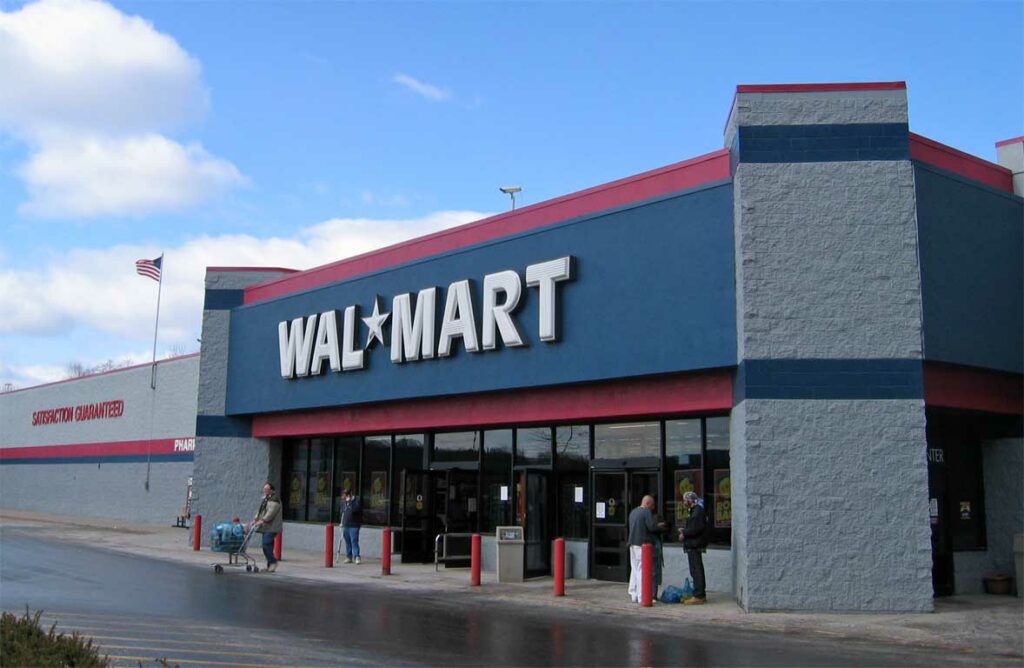The other day I was visiting a friend in another city and we had an interesting conversation. We wanted to go to the grocery store to pick up a few things, and as we piled into his car, he said, “Let’s go to Walmart.”
I took a deep breath and told him what I thought of this. (Don’t worry, no profanity was involved.)
“I don’t like Walmart,” I simply said.
“But things are really cheap there,” he responded. “Plus, we can get everything we need in one place. Otherwise, we’ll have to go to several different stores.”
OK, those may have been decent reasons, on the surface.
But as I pointed out to my friend, sometimes the places we go and things we do hold hidden costs, costs that are important to consider. Looking underneath the surface can reveal these costs. In this case, it’s well documented that Walmart has predatory business practices. Why is there a Walmart in almost every town of a certain size in the US? And why has Walmart expanded to dozens of other countries? It’s because they have the resources to be able to take pains to force small competitors out of business, through their locations and their undercutting of prices, which their economy of scale allows for.
What’s more, workers at Walmart often don’t make enough to survive on. There are plenty of stories about Walmart employees forced to apply for food stamps in order to supplement their income. Unions are certainly not allowed at Walmart stores, with management threatening workers who make any noises about organizing.
What happens to the local economy (I asked my friend) when a huge corporation, with its headquarters in some distant state, moves in? Perhaps in the short run there seem to be more new jobs, and people are happy about lower prices. But local artisans, mom and pop stores, local producers, local farms, they all take a hit.
Beyond that, we have to remember that the money you spend in a Walmart does not stay in your town or city. It flows back to corporate headquarters. In other words, it’s highly damaging to the local economy. A strong local economy is one that supports and encourages the growth of locally-owned businesses, so that the community as a whole is benefitted. There is a multiplier effect at work – spend money in your local stores and that money begins to recirculate locally, strengthening the community at large. This just does not happen with huge corporate stores – in this case most of the profit ends up padding a bank account of a gazillionaire in Arkansas.
I don’t mean to single out Walmart. They’re bad, but they’re not the only ones. Any time a chain store opens, it means money is leaking out of the locality as if through a sieve. It also means that longer supply chains are required; transportation costs of fuel and maintenance, with their attendant effects on climate change, are added to the external costs; and more preservatives need to be used to keep transported food looking fresh.
This is the antithesis of local heirloom tomatoes grown on a CSA (Community-Supported Agriculture) or a farm twenty miles from your doorstep. And during the pandemic, we learned what happens when a supply chain is disrupted – shortages, inflation, political unease and consumer frustration.
I hoped that my friend would reconsider his shopping habits, and I hope that if you’ve read this far, you’ll consider this option: If at all possible, don’t shop at large corporate chains. Instead, consider upping your support of local producers, local farms, local stores. Even if their costs are a little higher, it’s worth it in terms of the flourishing of community resilience, local pride, economic independence, and local jobs. Sometimes you need to look a bit beyond the surface and consider the bigger picture.
I told as much to my friend. I don’t know if it sunk in, but I’m keeping my fingers crossed.

